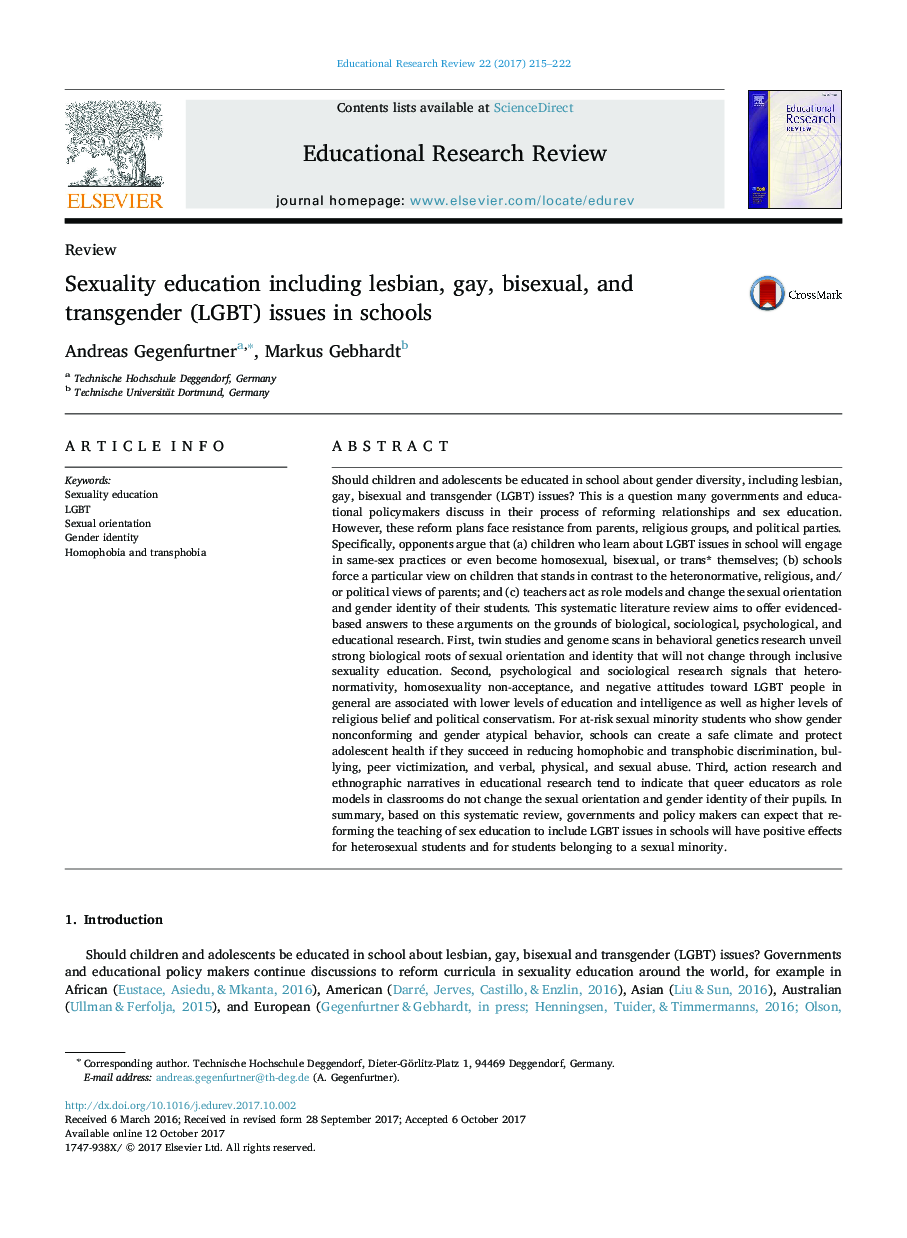| Article ID | Journal | Published Year | Pages | File Type |
|---|---|---|---|---|
| 4938362 | Educational Research Review | 2017 | 8 Pages |
Abstract
Should children and adolescents be educated in school about gender diversity, including lesbian, gay, bisexual and transgender (LGBT) issues? This is a question many governments and educational policymakers discuss in their process of reforming relationships and sex education. However, these reform plans face resistance from parents, religious groups, and political parties. Specifically, opponents argue that (a) children who learn about LGBT issues in school will engage in same-sex practices or even become homosexual, bisexual, or trans* themselves; (b) schools force a particular view on children that stands in contrast to the heteronormative, religious, and/or political views of parents; and (c) teachers act as role models and change the sexual orientation and gender identity of their students. This systematic literature review aims to offer evidenced-based answers to these arguments on the grounds of biological, sociological, psychological, and educational research. First, twin studies and genome scans in behavioral genetics research unveil strong biological roots of sexual orientation and identity that will not change through inclusive sexuality education. Second, psychological and sociological research signals that heteronormativity, homosexuality non-acceptance, and negative attitudes toward LGBT people in general are associated with lower levels of education and intelligence as well as higher levels of religious belief and political conservatism. For at-risk sexual minority students who show gender nonconforming and gender atypical behavior, schools can create a safe climate and protect adolescent health if they succeed in reducing homophobic and transphobic discrimination, bullying, peer victimization, and verbal, physical, and sexual abuse. Third, action research and ethnographic narratives in educational research tend to indicate that queer educators as role models in classrooms do not change the sexual orientation and gender identity of their pupils. In summary, based on this systematic review, governments and policy makers can expect that reforming the teaching of sex education to include LGBT issues in schools will have positive effects for heterosexual students and for students belonging to a sexual minority.
Related Topics
Social Sciences and Humanities
Psychology
Developmental and Educational Psychology
Authors
Andreas Gegenfurtner, Markus Gebhardt,
